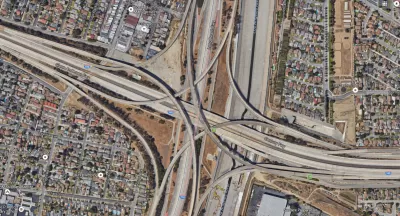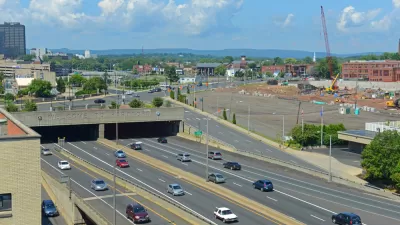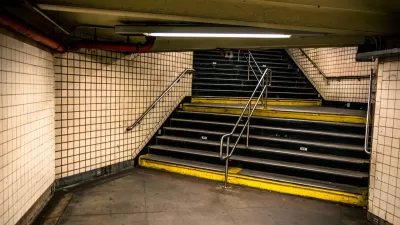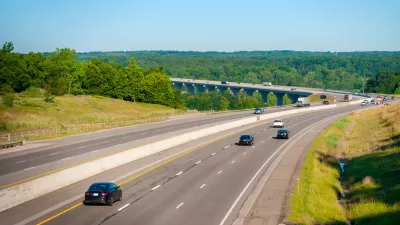An author and educator calls on a new generation of Americans to challenge the status quo and overcome the limitations and impacts of the country's existing infrastructure.

Jeffrey D. Sachs, professor and director of the Center for Sustainable Development at Columbia University, as well as the author of The Age of Sustainable Development, writes an op-ed for the Boston Globe calling for a new era of sustainable infrastructure.
According to Sachs, infrastructure is a generational challenge, and this generation is tasked with moving beyond the automobile.
The Automobile Age has run its course; our job is to renew our infrastructure in line with new needs, especially climate safety, and new opportunities, especially ubiquitous online information and smart machines.
Although Sachs acknowledges that the country has been neglecting its infrastructure as it deteriorates around us, Sachs says future infrastructure investments must focus on the long term. For a point of comparison, Sachs offers the infrastructure spending of the 2009 federal stimulus package, which focused on shovel-ready projects and jobs creation.
I PROPOSE THE opposite approach to short-term “stimulus.” I’d call it “long-term thinking,” even “long-term planning” (to use an idea that is anathema in Washington). Rather than trying to deploy construction workers within the next 60 days, I propose that we envision the kind of built environment we want for the next 60 years.
Sachs concludes the op-ed with a call to the current generation of planners, engineers, and citizens to use their imagination in envisioning the cities and rural areas of the future, and the kinds of infrastructure that will underpin their communities.
FULL STORY: Sustainable infrastructure after the Automobile Age

Planetizen Federal Action Tracker
A weekly monitor of how Trump’s orders and actions are impacting planners and planning in America.

Congressman Proposes Bill to Rename DC Metro “Trump Train”
The Make Autorail Great Again Act would withhold federal funding to the system until the Washington Metropolitan Area Transit Authority (WMATA), rebrands as the Washington Metropolitan Authority for Greater Access (WMAGA).

DARTSpace Platform Streamlines Dallas TOD Application Process
The Dallas transit agency hopes a shorter permitting timeline will boost transit-oriented development around rail stations.

Renters Now Outnumber Homeowners in Over 200 US Suburbs
High housing costs in city centers and the new-found flexibility offered by remote work are pushing more renters to suburban areas.

The Tiny, Adorable $7,000 Car Turning Japan Onto EVs
The single seat Mibot charges from a regular plug as quickly as an iPad, and is about half the price of an average EV.

Supreme Court Ruling in Pipeline Case Guts Federal Environmental Law
The decision limits the scope of a federal law that mandates extensive environmental impact reviews of energy, infrastructure, and transportation projects.
Urban Design for Planners 1: Software Tools
This six-course series explores essential urban design concepts using open source software and equips planners with the tools they need to participate fully in the urban design process.
Planning for Universal Design
Learn the tools for implementing Universal Design in planning regulations.
Roanoke Valley-Alleghany Regional Commission
City of Mt Shasta
City of Camden Redevelopment Agency
City of Astoria
Transportation Research & Education Center (TREC) at Portland State University
US High Speed Rail Association
City of Camden Redevelopment Agency
Municipality of Princeton (NJ)





























